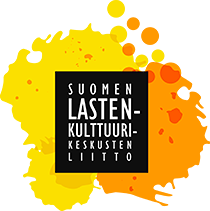The chain of generations

Huntington's disease
1. The father in the film has a hereditary illness, Huntington's disease. Follow the link below for more information on the illness and discuss what the chances are that a child will inherit it.
The distance learning upper secondary school biology course Cell and Heredity covers heredity in depth. Read more on the course here.
Wikipedia definition of Huntington's disease: ”Huntington's disease (morus Huntington), formerly known as Huntington's chorea, is a dominant hereditary condition. It causes dementia and uncontrollable jerky movements. The disease is more common in e.g. North America and Western Europe than in Finland. The disease is named after George Huntington, an American who was the first to thoroughly describe it.
Symptoms normally begin between the ages of 35 and 50, but in some rare cases they can start in childhood. Involuntary movements manifest in the facial muscles, the body and limbs as twitches and the patient often has motor dysfunction such as clumsiness. Dementia in Huntington's disease cases involves impaired memory, anxiety and aggression as well as a change in personality. Patients who exhibit symptoms in childhood may also have muscular rigidity.
Neuroimaging techniques such as a brain PET scan can show changes in brain metabolism even before the onset of symptoms. In later stages, a PET or MRI scan can reveal atrophy of the heads of caudate nuclei. The gene that causes the illness can usually be identified and a placental sample can be used to assess risk of illness prenatally.
There is no cure for Huntington's disease. The illness generally leads to death within 15-30 years from the onset of symptoms. Involuntary movements can be treated with medication. The treatment of dementia follows the general principles of treating dementia. Heredity counselling is also considered useful. Ethical questions are posed by the debate over when a person should know that he or she carries this incurable illness and that his or her children have a 50% chance of having it.” (Reference)
More information in Finnish: http://www.parkinson.fi/sairausryhm%C3%A4t/huntingtonin-tauti/perustietoa
2. Heredity and roots are one of the central themes of the film. Draft a family tree of the Kuurna family based on the information from the film. Expand on the family tree with branches and roots by coming up with your own additions beyond those mentioned in the film. Also draft your own family tree to the extent you are able to. What traits have you inherited from your parents or grandparents? Think about what traits can be hereditary and why knowing one's roots is important. Discuss your roots at home.
Sayings on family
1. a) What's the source of the following sayings: "the family is the worst", "the apple does not fall far from the tree", "a name does not make a man worse", "the family is best", "you can choose your friends, but not your family" and "the child of the shoemaker doesn't have shoes". Come up with more sayings on your own.
b) Saara Saarela, the director of the film, has said ”one's own roots can be a little skewed, but never twisted". What do you think she means?





